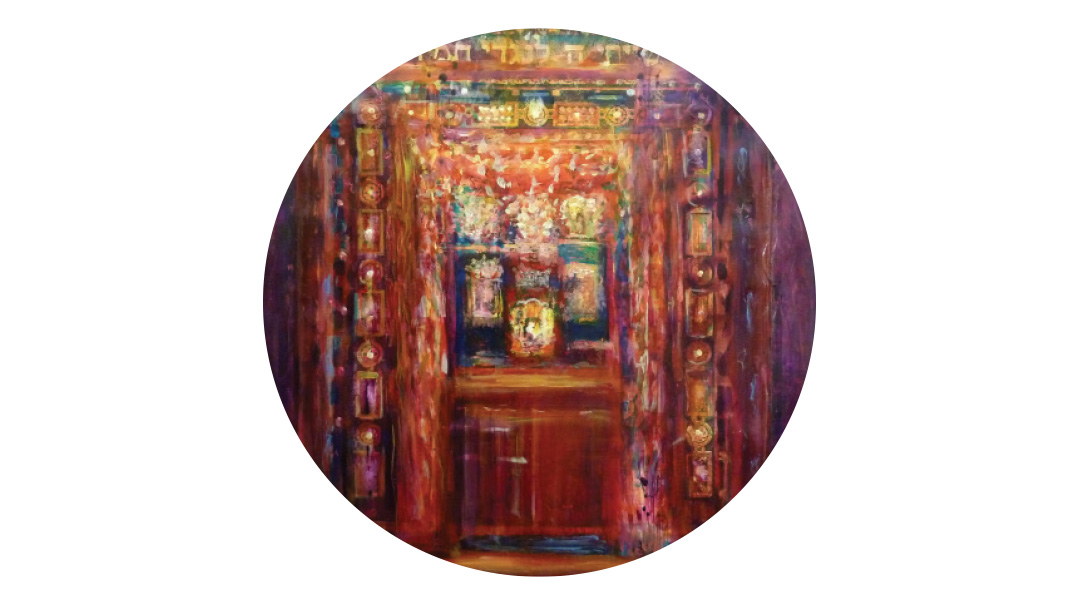Why We All Need a Hard (and a Soft) Heart

Why Elul needs a hard heart — and a soft one

A
soft heart sounds nice: warm and welcoming, like a soft pillow that invites you in to relax and just be. Poke your finger into that soft pillow and the pillow responds — you can actually see the indentation, its softness saying that there is room for someone else here.
A hard heart, on the other hand, is harsh and unforgiving — like a hard pillow that no matter how much you thump and bump it, just sits there impermeable and stuffed with itself — as if you don’t even exist.
“I will switch your heart of stone to a heart of flesh,” promises Yechezkel Hanavi. (Yechezkel 36:26) Unlike a stone heart — uncaring, unreachable, impenetrable, hard, and obtuse — a heart of flesh is open, permeable, and responsive. Indeed, the Hebrew word for flesh, “basar,” shares a root with the word l’vaser — “to inform or let know”: our fleshy skin constantly interacts with the environment and “lets us know” if something is hot or cold, prickly or cuddly. (Paraphrased from Rav Samson Raphael Hirsch.)
But is a soft (responsive, open, vulnerable) heart always good?
Clearly, the answer is no. A soft heart may be what is needed in a relationship — openness and responsiveness are what turns monologue into a dialogue. But sometimes the goal is not relationship, but action. When we need to battle, overcome, conquer, accomplish... a soft heart can be a real deficit. Battle takes resolve, commitment, and single-minded focus; opening yourself up to feelings, doubts, and second opinions will just knock you off course.
No Soft Soldiers
Indeed, the Torah tells us that in a milchemes mitzvah, the “softhearted” (rach haleivav) soldiers were sent home and not allowed to fight. A soldier needs to be tough, resolute, and focused — the last thing he needs is a soft (and by definition, conflicted) heart. And in a fascinating insight, the Torah tells us that a soft heart is contagious — “lest he cause his friend’s heart to melt, like his own melted heart.” (Devarim 20:8) Whether the soldier has doubts about killing others (Chizkuni) or doubts about being killed (Ibn Ezra), his “softness” will pollute the single-minded focus, will jostle the surety, and might make others soft and weak as well.
On the battlefield where you fight to win, at the stock market where you fight to gain, in the beis midrash, where you fight for truth, or in a jungle, facing off with a lion — the way to go is to harden one’s heart: banish doubts, repress emotions, home in on the goal at hand. The least helpful thing to do at this point would be to wonder how this lion’s cub will feel about you killing his dad. Hard-heart mode forges ahead with complete clarity and total focus.
Men have traditionally been seen as the hunter/conqueror/defender in family and social life. And in line with this role, our culture tells men to keep a stiff upper lip, to get with the program, and to man up (with the clear connotation of what the opposite of manning up is — and how shameful that would be). In Judaism, men are the metzuveh v’oseh — charged with a 24/7 mission. The Torah tells them that too much schmoozing with (emotional, softhearted) women isn’t good (al tarbeh sichah im ha’ishah — based on Maharal). Soft hearts can have a negative effect when you are being groomed for hard-heart mode.
Many men learn this lesson well. Growing to manhood often involves expending lots of energy on driving emotions deep under the surface so that they will have what it takes to move in for the kill.
Hard Meets Soft
Women, on the other hand, are socialized from birth to have a soft heart — to be responsive and attuned. Woman are taught to tease out what they really feel, to intuit what’s really going on, and how to articulate all this hidden drama in words. The prototype woman swims easily in the sea of emotions — she is an expert at riding the emotional waves.
What happens when a hard heart and a soft heart get together? That’s where things get interesting. For better or for worse, human beings don’t have a switch that can be flipped to change modes at the drop of a request from the person they are having a conversation with.
For someone in hard heart/single-focused/action mode, emotions can feel like being dropped into a tumultuous sea, complete with tricky undercurrents and scary riptides. His meager swimming lessons — call Bubby on Erev Shabbos, it will make her so happy; buy Ma flowers for Yom Tov, she’ll forgive you for not helping so much — seem completely inadequate and clearly are not helping right now.
It’s important to remember this when hard heart retreats to his “cave” — shuts down, detaches, or closes up; this may not be, as is often assumed, a rejection of his interlocuter (okay, his wife) so much as a regroup to process his real fear and overwhelm.
What he would really love — rather than criticism and scornful character assessments about his obtuseness — is to be thrown a life belt by a kind, patient friend (his rei’ah ahuvah), who understands that it takes time and practice to learn to swim. It’s important to note that this stereotypical man is not “unemotional”; all human beings have emotions. It’s that he has been trained in hard-heartedness, has been groomed (and praised) for burying his emotions, and right now he has been knocked over by a tidal wave of feelings that he had no clue even existed.
It truly is “not good for man to be alone.” Emotions are an expression of our deepest humanity, and hard-hearted people need softhearted people to help them out. (It goes without saying that the hard-heart/soft-heart binary is not always divided along gender lines — we all know softhearted emotional men and hard-hearted razor-focused women. But, as always, the male/female dynamic is a multilayered metaphor of all dynamics in life.)
Soft Yet Single-Minded
Elul requires us to have a lev basar — soft, open, responsive, vulnerable, and permeable. Elul is about yearning for closeness.
But Elul is also about having a hard heart: Yearning is not enough. We need to do resolute battle with our lower selves, give focused expression to our lofty ideals. For a Jew, it’s not enough to yearn for a relationship with Hashem.
A relationship with Hashem also requires turning off the snooze button to make it to shul by 6:45 a.m., even though we don’t “feel” like it. A relationship with Hashem means we need to decisively stop the conversation at its juiciest point, because, even if our softheart (which, being soft, has room for lots of “what if”s, “ands” and “buts”) tells us it might one day (you never know) be “l’toeles.” Our hard heart knows this conversation is unequivocally wrong.
In Elul, we say these beautiful words that give expression to this marriage between the hard heart and the soft heart, between the masculine and the feminine in each of us: Kavei el Hashem, chazek v’ametz libecha, v’kavei el Hashem.
Kavei el Hashem: Yearn and hope for closeness with Hashem. Even if I prefer the stoic, can-do, independent, male mode, kavei el Hashem acknowledges that I am lacking and vulnerable. There is something out there that I really want, but I don’t have. Kavei el Hashem puts our pain, our fear, our helplessness right out there — and helps us turn it into desire.
But then, ametz libecha — harden your heart and move into battle mode. Commit to a course of action, don’t waffle or second guess (I tried last year and it didn’t work, who needs this, it never works, who am I fooling?). Get with the program. Elul is not the time for equivocation. There is work to do.
Indeed, it is in that symbiosis between the masculine and the feminine that “tov” lies — marriage being not only a great metaphor, but also a great workshop in which to practice what Elul is all about.
It is our softhearted, vulnerable (feminine) yearnings that open up the possibility of relationship with Hashem, and it is our single-minded (masculine) focus on defeating evil, on “walking our talk,” that refines us, and propels us upward to higher level yearning, and higher level connection.
Miriam Kosman is the author of Circle, Arrow, Spiral, Exploring Gender in Judaism (in its sixth printing and recently translated into French and Hebrew), and a lecturer for Nefesh Yehudi, the Israeli branch of Olami. To see more of her writing or to book a one-on-one session with her, visit miriamkosman.com.
(Originally featured in Family First, Issue 911)
Oops! We could not locate your form.







